Yamal LNG and Arctic LNG 2: Gas in the Russian Arctic
Location:
Yamalo-Nenets Autonomous Okrug, RussiaProject risks:
Environmental Destruction, Social HarmCompanies:
Location of Yamal LNG. By zooming in, you can recognize the LNG facility.
Fossil gas companies are invading one of the most sensitive ecosystems on the planet: the Arctic wilderness in Siberia. On the Yamal peninsula in Western Siberia, gas companies Novatek and TotalEnergies are operating an LNG (liquefied natural gas) megaproject. For thousands of years, the indigenous Nenets people have been living on the Yamal peninsula as nomadic reindeer herders.15239 The Yamal LNG megaproject is threatening the very foundations of the Nenets’ way of life. Despite the harm the gas companies have already caused, another LNG project has just been launched across the Ob Bay, on the shores of the Gyda peninsula: Arctic LNG 2.
The Yamal and Gyda peninsulas are a vast wilderness of Arctic tundra covered with shrubs, mosses, lakes, and grasslands. This expanse of Western Siberia is home to Arctic foxes, lemmings, reindeer and numerous bird species.15239 Over 50 species of nesting birds come each year to raise their young. In the winter, temperatures can go down to -50°C.15239 It is a place where most humans would find it difficult to survive.
The Nenets people’s way of life is closely interwoven with this Arctic wilderness. Many Nenets are nomadic reindeer herders whose livelihoods are rooted in hunting and fishing.15239 As the seasons change, the Nenets walk ancient migration routes across the Yamal peninsula for hundreds of kilometers to bring the reindeer to their pastures.15239
Note: Reputational risk projects on GOGEL are updated annually. This article was last updated November 11 2024.
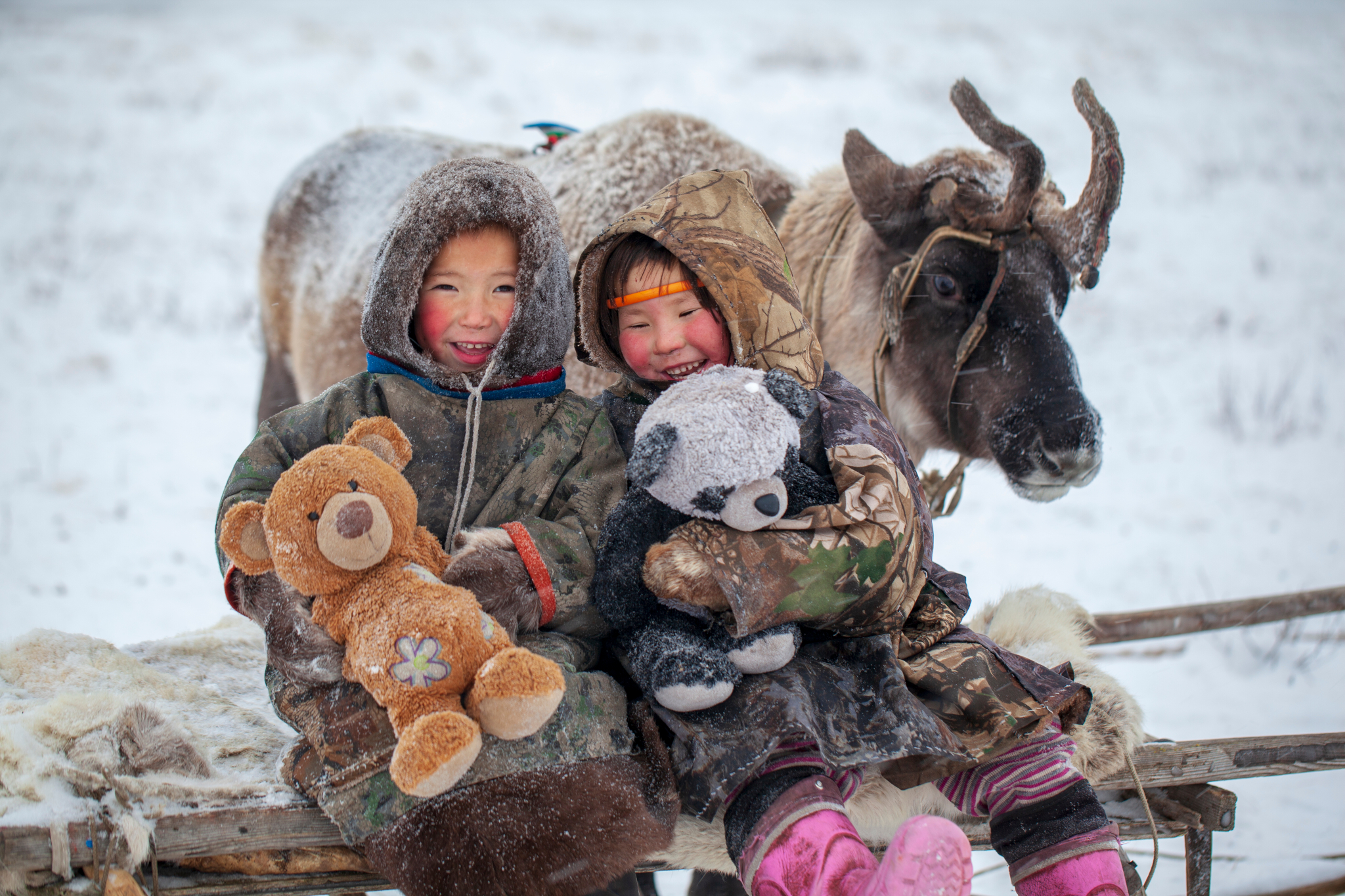
Climate change is rapidly changing the Arctic.19563 Winters are getting milder and the summers hotter.15239 During the winter of 2020, freezing rainfall formed an unbreakable layer of ice on top of the snow. The reindeer had no chance to feed on the lichen in the snow underneath the ice sheet.15239 In that winter, up to 80,000 reindeer starved to death. Hundreds of Nenets families feared for their livelihoods.[1][2]
The Russian Arctic is among the most rapidly heating regions on Earth.[3] In some places, the permafrost that lies beneath the tundra is thawing so quickly that the landscape has begun to collapse. Like bomb craters, huge sinkholes have opened up, sometimes more than 80 meters wide.[4][5][6] No one knows when and where the ground will rupture next.15239 This uncertainty makes migration through this unstable area very risky. It forces the Nenets and their reindeer to look for safer routes and passages on the Yamal peninsula.
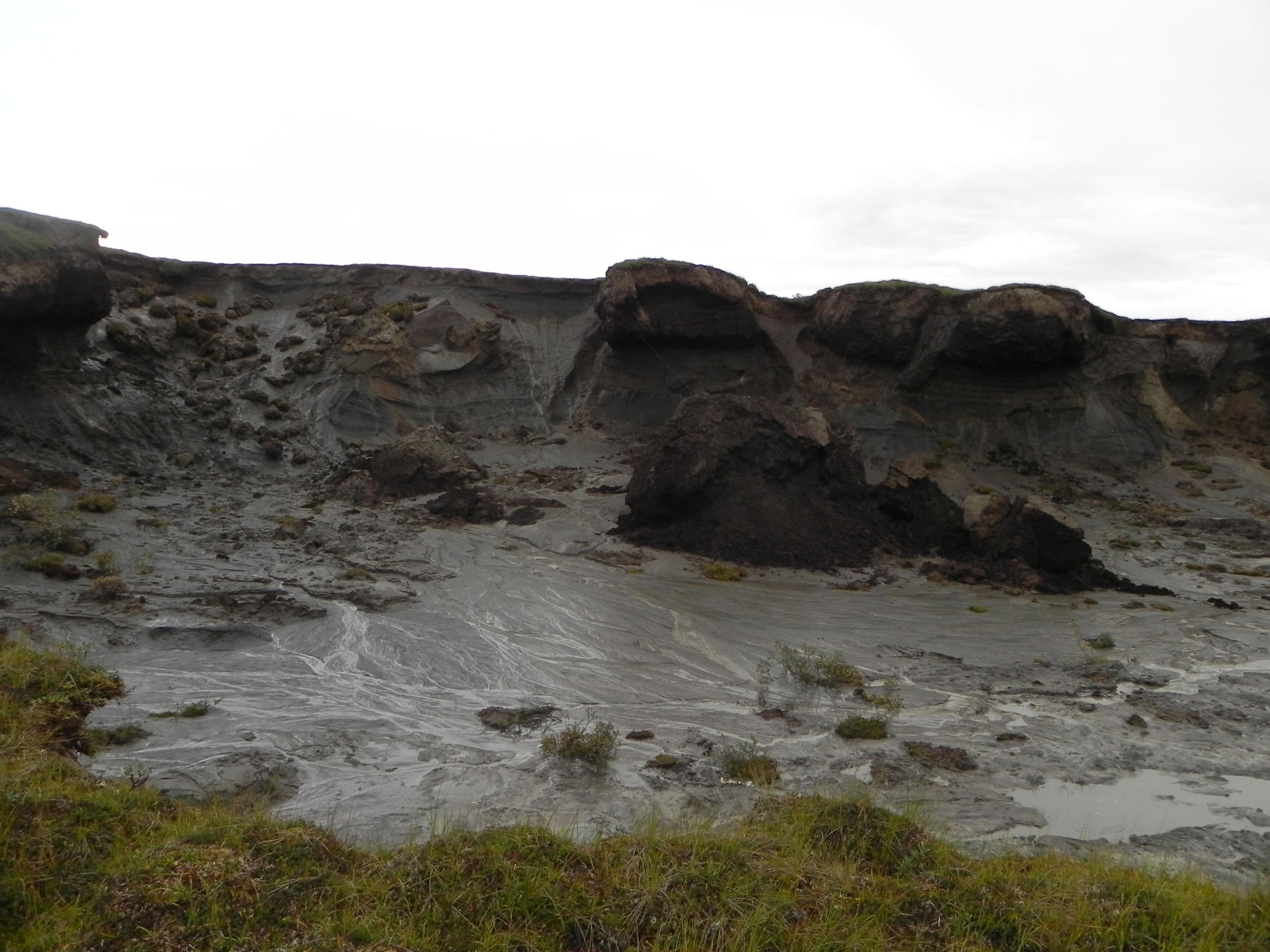
Deep beneath the Arctic tundra, the Yamal peninsula holds one of the largest gas reserves of the planet.[7] Since the arrival of gas companies, the Arctic environment has been changing rapidly. The gas companies have built service roads, pumping stations, open waste pits, hundreds of wells and pipelines that are now crisscrossing the tundra. The gas infrastructure is an obstacle in the Nenets’ way to the pastures.15239 The gas companies have seized large areas of pasture that reindeer herds used to graze on.15239 The Nenet herders and their reindeer have to walk through this gigantic industrial maze. They cannot use the roads because they destroy their sleighs. To cross, the Nenets must lay out large textile sheets or pile up sand on the roads to protect the sleighs.[8]
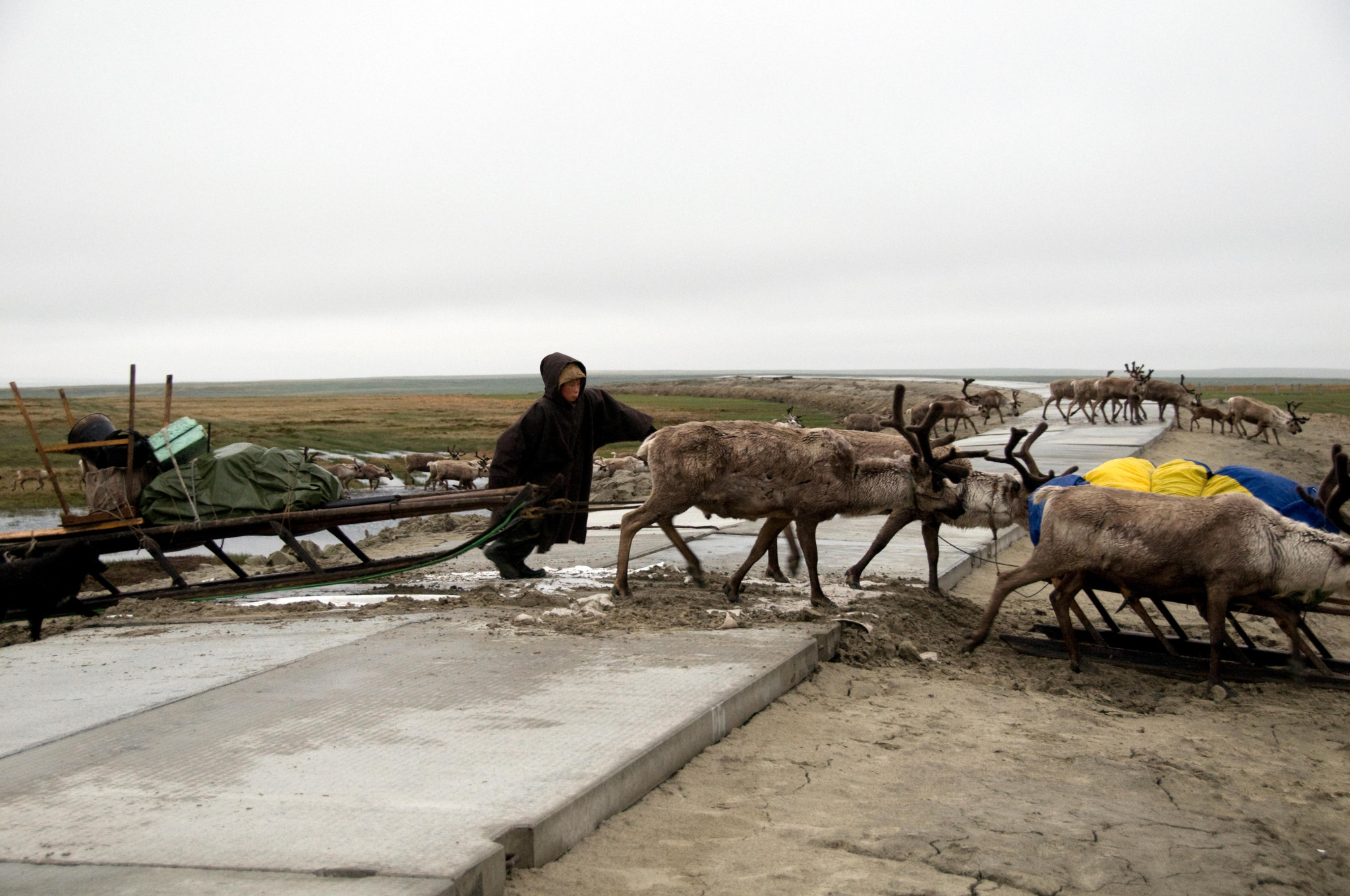
Never before has the Russian Arctic experienced such dramatic changes in its environment and ecology. The Gulf of Ob used to be a shallow sea channel before the gas companies arrived. To deepen the route to the port, construction companies dug it up. With heavy machinery, they dug out more than 70 million tons of sand to ensure that the LNG mega tankers can reach the Yamal LNG terminal.[9] As a result of the heavy construction activity, seismic disturbance and disruption to their feeding ecosystem, the people of Yamal report that almost all the fish have disappeared from the Gulf and surrounding lakes.15239 In the barren Arctic tundra, fish is a critically important source of food to people.15239 The Nenets and local fishermen worry that the fish will never return.1525915259
Although they are well aware of what they are destroying, Novatek and its partners want to start uphave launched the first phase of Arctic LNG 2 on the Gyda peninsula on the other side of the Gulf. Arctic LNG 2 is Novatek’s second LNG terminal in the Arctic.[11]
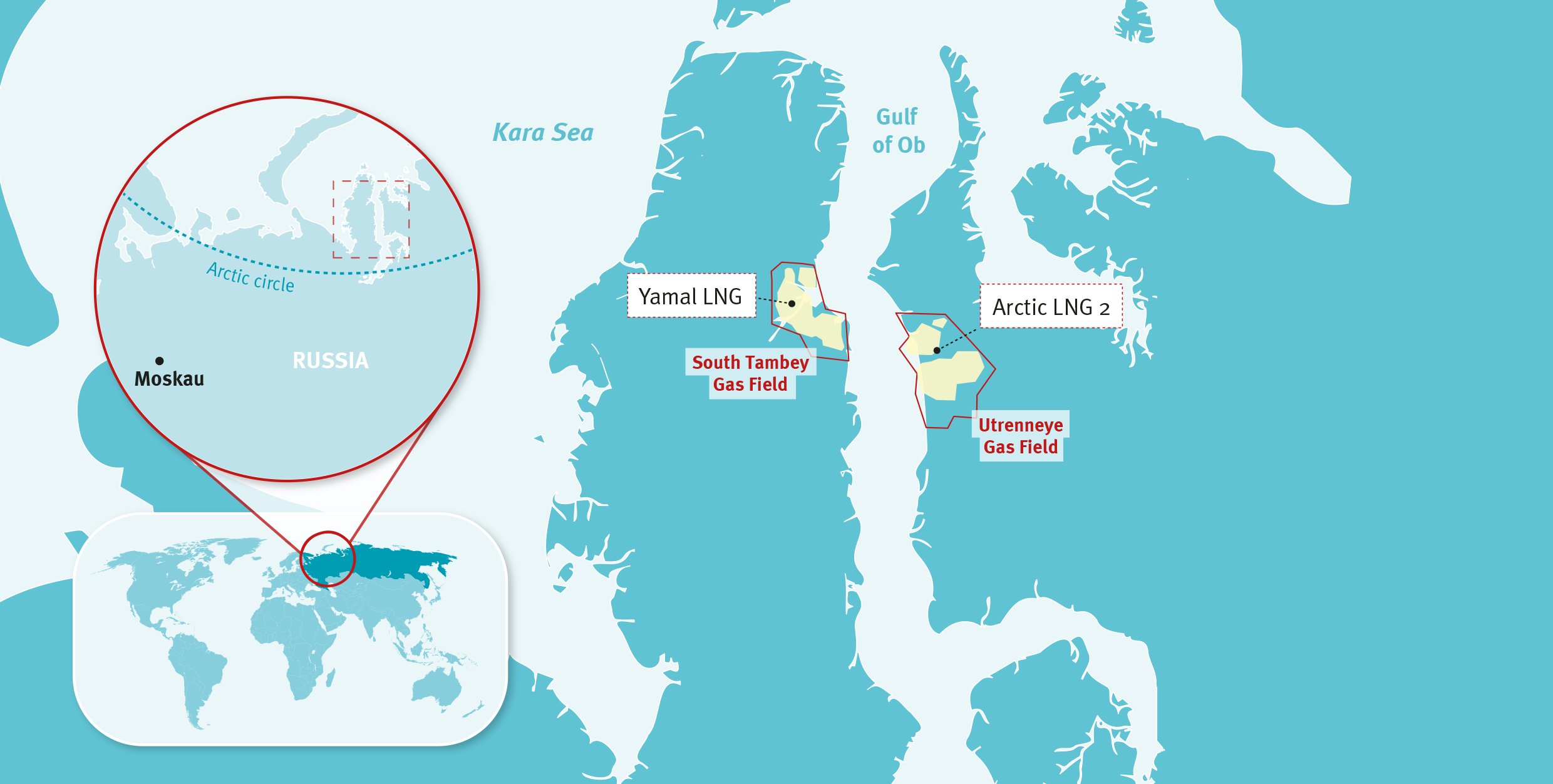
They used heavy machinery to dig up a total of 60 million cubic meters of sand to create a 510m wide corridor for Arctic LNG 2.15239 As they removed the seabed, the machinery altered water currents that used to flush nutrients and food particles into the Gulf. The machines stirred up large amounts of mud that suffocate fish larvae and algae.[15] Scientists warn that Arctic fish species such as the sturgeon, whitefish, smelt and freshwater cod may never recover.[16]
Novatek will not stop there. The Russian gas giant is toying with the idea to build another fossil gas facility close to Yamal LNG: Ob LNG.15239 News outlets report that Ob LNG would run on fossil gas extracted from within a previously protected nature area.[18] According to the Barents Observer, gas companies have pressured state authorities to redraw the boundaries of the nature reserve on numerous occasions to allow their gas projects to go forward.15239
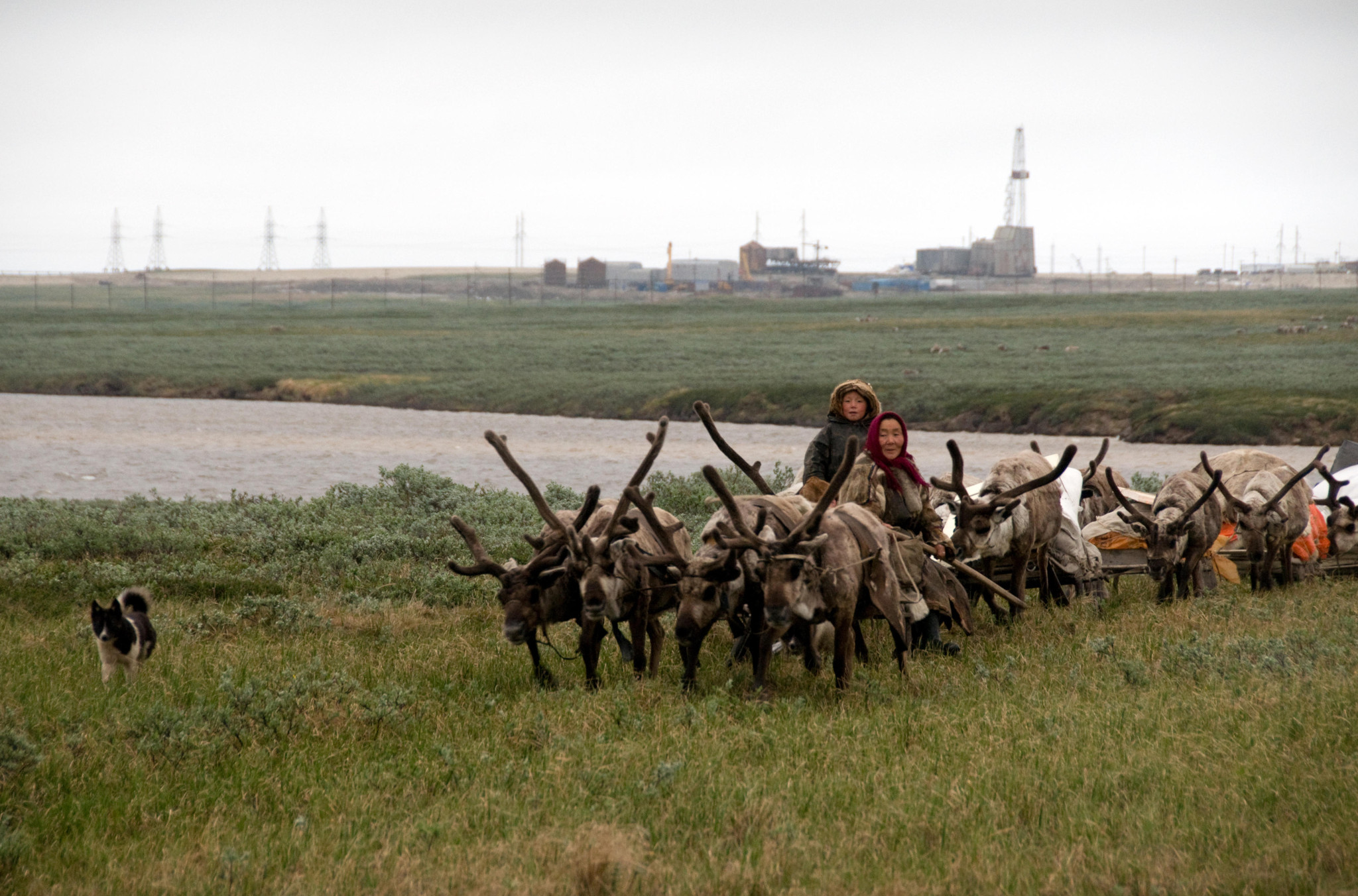
The gas companies are wrecking the Arctic wilderness and along with it, the livelihoods of the Nenets. This ongoing environmental destruction is forcing nomadic Nenets families to settle in villages like Seyakha.15239 In Seyakha, there are not enough houses or employment opportunities to meet the needs of herders that have had to give up their nomadic way of life.15239 Nenets herder Sergei Hudi is one of those who feels the effects of the ongoing gas expansion in the Russian Arctic: "We are afraid that with all these new industries, we will not be able to migrate anymore. And if we cannot migrate anymore, our people may just disappear altogether" he told Survival International.[21]
Since Russia’s invasion of Ukraine in February 2022, gas projects in the Russian Arctic have faced an exodus of money, technology and partners. After the European Union enforced sanctions on the energy sector, European and Chinese companies stopped the construction of modules for Arctic LNG 2.1244112443 Financial institutions like the Japan Bank for International Cooperation (JBIC) have frozen loans for Arctic LNG 2.1244712445 US sanctions have targeted the specialized ships needed to reach the terminal through thick ice.1956819569 This puts the future expansion of Arctic LNG 2 in doubt.124491245119570 At the same time, foreign oil and gas companies are leaving Russia en masse.12453 The French oil and gas major TotalEnergies announced that it will no longer invest in new Russian projects and has written down its shares in Novatek as well as its stake in Arctic LNG 2.1523915239 Through a minority stake in the company Arctic Transshipment, TotalEnergies still provides storage units to Arctic LNG 2.15239 The company has also decided to stay involved in Yamal LNG. Through 2022, TotalEnergies continued to cash in on its Russian operations.15239
More than two years after Russia’s war of aggression against Ukraine began, Russia is still one of Europe’s largest suppliers of LNG. The majority of Russian LNG imports to Europe mainly come from the Yamal terminal.19572 While a new EU ban on transshipping of Russian LNG in its ports might complicate Yamal LNG’s exports, civil society groups in Europe and Ukraine continue to call for a full embargo.1957319574 Russian oil and gas exporters have turned to using a so-called shadow fleet of 600 or more transportation vessels to circumvent sanctions.1957519576 It is suspected that the operational section of Arctic LNG 2 is using the shadow fleet to export its sanctioned LNG.19577 These ships are often older ships that travel with limited insurance and visibility, held by an obscure network of shell companies to hide their ownership.19578 The shoddy state of the ships and their regulation-avoiding nature has raised significant concerns regarding possible collisions or spills.1957919580 The picture could not be clearer: benefitting from gas business in the Russian Arctic is not only risking environmental catastrophes and destroying unique Arctic tundra, but also helping to finance the brutal war against the Ukrainian people.
For more information on the current situation and how the involved companies react to the war, please visit our dedicated campaign website defuelrussiaswar.org.
Groups working on Yamal and Arctic LNG2: Yamal to its descendants, Russian Association of Indigenous Peoples of the North (RAIPON), United Yamal, Greenpeace Russia, WWF Russia
Sources: